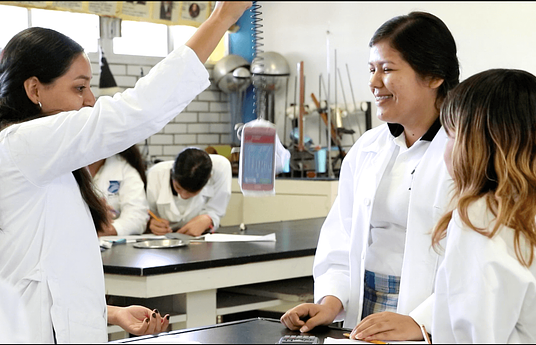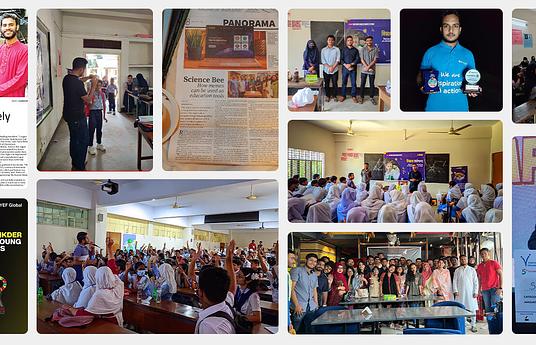Arludo's mission is to increase interest in STEM topics and improve scientific thinking for students of all genders, ages, and socioeconomic levels.
Students are disengaged with science. One of the reasons cited for this student disengagement is the uptake of smartphones and the immediate social coherence students feel by interacting through them. In fact, more than 70% of students state they couldn’t live without their smartphone. Universities and edtech companies have responded to this perceived desire for digital by gamifying educational resources through online games and simulations. The problem is that these digital approaches haven’t changed how students are learning, they have only changed how content is delivered, and the content isn’t even delivered through the means students prefer.
What’s needed is a new approach that engages the way students want to – through mobile phones, and excites students about learning.
As a teacher, I feel that teachers are the greatest resources we have. I created Arludo to help empower teachers with intuitive technologies and make it easier for teachers to plan lessons, provide opportunities for hands-on learning where students collect scientific data, and spend more time with each student. That’s why we at Arludo are creating a free digital library of mobile games and apps that are changing the face of education. Each of our current 20 games and apps played in 10-25 minutes, teaches a singular topic, collects scientific data for classes to explore, and has a unique teaching approach. These approaches range from single and multiplayer games, to group games that use augmented reality, to games revolving around problem-based learning.
Arludo apps are a move away from computers which are static and targeted for individual use and instead focus on smartphones – tools that are mobile and associated with sharing and networking. Most importantly, because students are more comfortable using mobile phones, it immediately removes barriers, encouraging students to engage with one another and with teachers. Using smartphones allows us to use all the sensors and accelerometers within the devices to develop unique learning experiences and approaches that are perfectly matched to specific topics being taught. For example, we have already incorporated augmented reality approaches providing the opportunity for students to use ‘real’ animals in experiments. As smartphones become more powerful, it will open the door to new uses and teaching approaches. Most importantly, our focus on smartphones increases the accessibility to students because there is no need for schools to purchase and maintain infrastructure as students own all the hardware.
The mobile apps created by Arludo are simple enough to teach the basic concepts of a particular topic, but complex enough that a more in-depth use of the mobile apps allows for the exploration of higher order theories. As a result, the mobile apps can be used with students at any level and age from late primary to tertiary.



